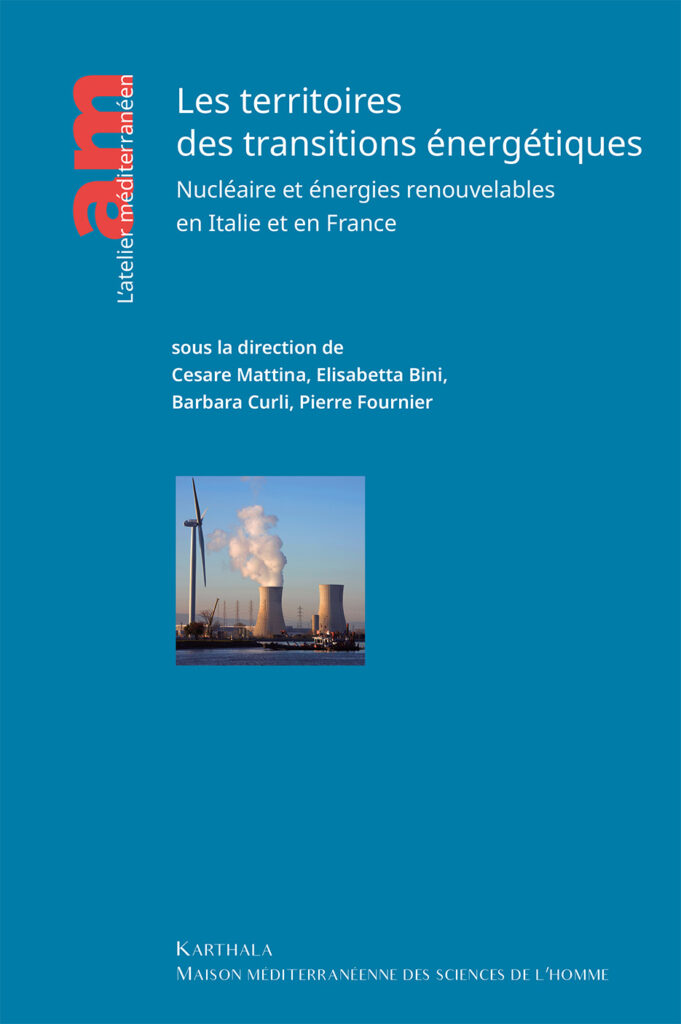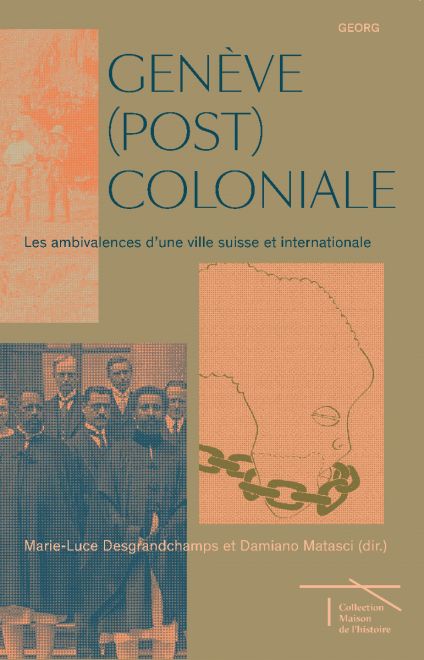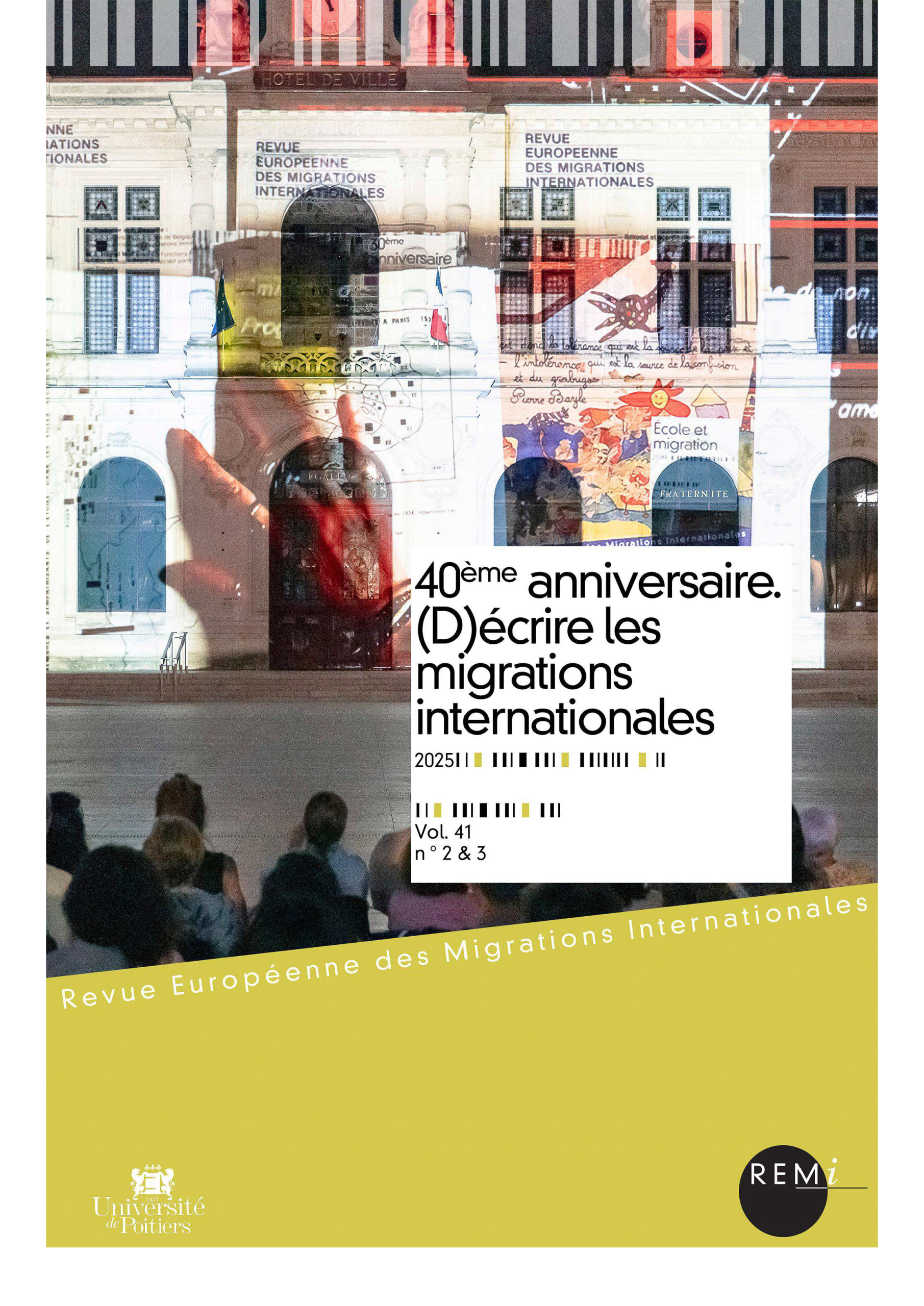Cesare Mattina & Pierre Fournier
"Les territoires des transitions énergétiques Nuclear and renewable energies in Italy and France", Karthala/MMSH, 352 p.

Edited by Cesare Mattina, Elisabetta Bini, Barbara Curli and Pierre Fournier
Description
The "energy transition" is now being presented in the public debate as a matter of course, as if our societies were going to move from bad fossil fuels to good renewable energies. However, it is not enough to analyse the transition from the perspective of international policy alone. In this book, the authors propose to look at energy shifts in the present as well as in the past, 'from above' as well as 'from below', as they are negotiated locally in the areas where nuclear power and renewable photovoltaic and wind energy are installed.
The socio-historical surveys carried out in different local contexts in Italy and France provide the basis for a comparison between these two Mediterranean countries, which are in stark contrast in terms of their energy mix and the dynamics of their choices: nuclear power is being deconstructed in Italy, but still dominates electricity production in France; the development of renewable energies is more advanced in Italy than in France; and there are similar difficulties in moving away from oil and gas. In both cases, the territorial processes of energy transition call into question public policy choices that oscillate between regional decentralisation and the constant temptation of state recentralisation.
This Franco-Italian research project is headed by Cesare Mattina and Pierre Fournier, sociologists at the Mesopolhis laboratory (CNRS-AMU-Sciences Po Aix); and, on the Italian side, historians Elisabetta Bini (University of Naples Federico 2) and Barbara Curli (University of Turin).
Other contributors to this book include Vincent Baggioni, Giovanni Carrosio, Stéphanie Dechézelles, Elena Greco, Mathieu Leborgne, Davide Pellegrino, Ivano Scotti and Elisabetta Vezzosi.
Contents
Introduction - Elisabetta Bini, Barbara Curli, Pierre Fournier, Cesare Mattina,
For a localised socio-history of energy transitions
Part 1 - Locating energies: host territory or territory-actor?
Barbara Curli, The Italian nuclear start-up in Piedmont: private interests, national policy and international relations (1956-1959)
Cesare Mattina, Davide Pellegrino, Pro and anti nuclear projects in Northern Italy in the 1950s and 1960s
Elisabetta Bini, Relaunching the atomic state. Industry, territory and society in conflict over the Italian nuclear programme (1975-1985)
Vincent Baggioni, La transition énergétique par le bas : logiques d'appropriation municipale des parcs solaires (Energy transition from below: municipal appropriation of solar farms)
in south-east France
Part 2 - Experiencing and planning for energy regions
Pierre Fournier, Living with nuclear power. Promises tempered by serious uncertainties
Cesare Mattina, Davide Pellegrino, More converted promises than betrayed hopes. The territories of nuclear research in Piedmont
Elena Greco, After nuclear power: the Trino area during the plant decommissioning phase
Ivano Scotti, Giovanni Carrosio, The territories of the wind. Wind turbines and local societies in southern Italy
Part 3 - Deciding the future: participation and mobilisation
Mathieu Leborgne, Le débat public autour d'une nouvelle installation nucléaire : l'occasion d'exprimer des attentes et, paradoxiquement, des déceptions
Elisabetta Vezzosi, The anti-nuclear women's movement in Italy. Pacifism, environment, society
Stéphanie Dechézelles, Contesting renewable energies. Franco-Italian comparisons of mobilisations against large wind farms
Conclusion - Elisabetta Bini, Barbara Curli, Pierre Fournier and Cesare Mattina
Share on
Read also


